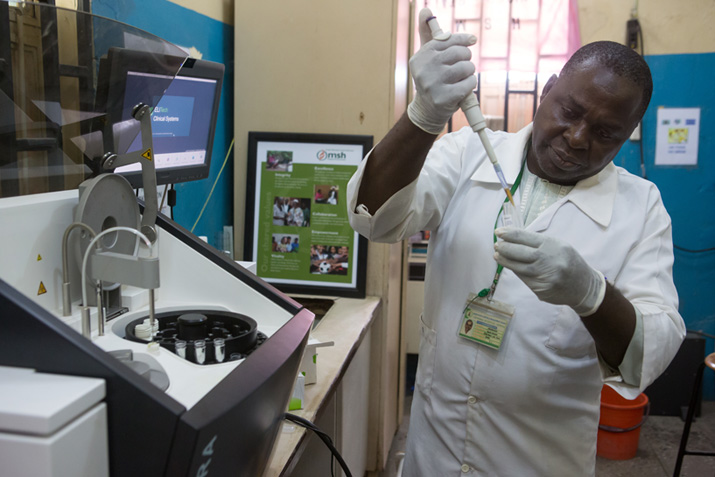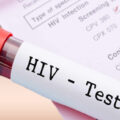What is a hormonal assay test?
A hormonal assay test is performed to give an indication of metabolic processes and conditions, or ‘hormone imbalance’. Many hormones can be measured (assayed) in the blood, including male and female sex hormones (oestrogen, progesterone, testosterone) and hormones secreted by other glands such as the parathyroid and adrenal glands.
How is hormonal assay test done in Nigeria?
Hormonal assays are a blood test and require a few millilitres of blood from a vein.
When would you need a hormonal assay?
Specific hormones or sets of related hormones may be tested in a variety of clinical situations. Commonly, hormonal tests may be related to issues of fertility, menstrual irregularities, or menopause.
Your doctor may request specific hormonal tests if there is a suspicion of an endocrine problem, relating to the function of many glands in the body, including the pituitary, thyroid, parathyroid, adrenals, ovaries and testes.
Test results, explained
Hormone tests give the concentration of specific hormones in the bloodstream. These results are compared to a reference range of ‘normal’ values, obtained from testing well people without symptoms. The specific hormone level may therefore be low, normal, or high.
Each of these results needs to be carefully interpreted by a doctor who understands the complex interactions of the endocrine system, in the context of the limitations of biochemical testing of hormones. A high or low level may not indicate disease, and similarly, a normal test does not always rule out an abnormality.
Hormone assays are very important in obstetrics and gynecology. Female hormonal testing is recommended when irregularities are identified in your menstrual cycle or physical examination.
Hormones & infertility at a glance
- High levels of follicle-stimulating hormone (FSH) in a woman’s blood could reduce chances of getting pregnant.
- Abnormal levels of estradiol, an important form of estrogen, decreases chances of in vitro fertilization (IVF) success.
- Insufficient levels of luteinizing hormone (LH), which stimulates the ovaries to release an egg and start producing progesterone, can also be a cause of fertility problems.
- Normal levels of progesterone, which prepares the uterus for a fertilized egg’s arrival, must be present in order for a woman to get pregnant.
Follicle-stimulating hormone (FSH)
Follicle-stimulating hormone (FSH) helps control the menstrual cycle and egg production. FSH levels are tested on day 2 or 3 of the menstrual cycle to determine a woman’s ovarian function and evaluate egg quality.
In general, women with elevated FSH levels found in their blood on day 2 or 3 of the menstrual cycle have reduced chances of live birth compared to other women of the same age, even with ovulation induction and IVF.
Currently, several laboratory methods are used to measure FSH blood levels, and measurement of these levels may vary considerably depending on the laboratory and method used. Therefore, it is difficult to compare blood levels that are measured at different laboratories or by different techniques.
It is important that normal and abnormal test values be based on the pregnancy rates achieved by women studied at a particular center using the same laboratory methods.
Estradiol
In conjunction with the FSH test, a woman’s ovarian function and quality of eggs can be evaluated through testing estradiol, an important form of estrogen. This test is also performed on day 2 or 3 of the menstrual cycle.
The results of these tests are not absolute indicators of infertility but abnormally elevated levels correlate with decreased response to ovulation induction medications, and thus lowered IVF success.
Luteinizing hormone
Luteinizing Hormone (LH) stimulates the ovaries to release an egg and start producing progesterone – a hormone that prepares the uterine environment to nurture a fertilized egg. LH can be found in a woman’s urine just before ovulation occurs. Over-the-counter tests that help predict ovulation measure this increase of LH via a urine sample. Urinary LH testing is commonly used to help time intercourse in order to improve pregnancy chances.
Progesterone
The ovaries produce the progesterone hormone just after ovulation. At about mid-cycle – 12 to 16 days after the first day of the menstrual cycle – progesterone prepares the uterus for a fertilized egg’s arrival.
Progesterone levels generally peak one week after ovulation, and can be measured through blood tests to detect the amount of progesterone present in the blood stream. After establishing a baseline of progesterone in the blood, a doctor will obtain a mid-luteal serum progesterone test around day 21 of the menstrual cycle or, if urinary LH predictor tests show a positive surge consistent with ovulation, seven days after this test is positive.
Saliva testing
Saliva can also be tested for progesterone levels. Although saliva contains much less blood stream progesterone levels, the hormone can still be measured. This test can be performed by a doctor or with a home test kit, but all results should be discussed with a doctor. The validity of this test is still in debate in the medical community, and buyers of home test kits should be aware that the success rates of home tests are not always valid.
How Much Does Hormonal Assay Test Cost In Nigeria?
The cost of hormonal assay test in Nigeria depends on the type and location of the hospital or laboratory. The charges are generally cheaper in government or public hospital where charges ranges between =N= 9000-17,000. Private hospitals and laboratories in Nigeria can charge as much as =N= 50,000 depending on the list of hormones specified in the request by your doctor.





